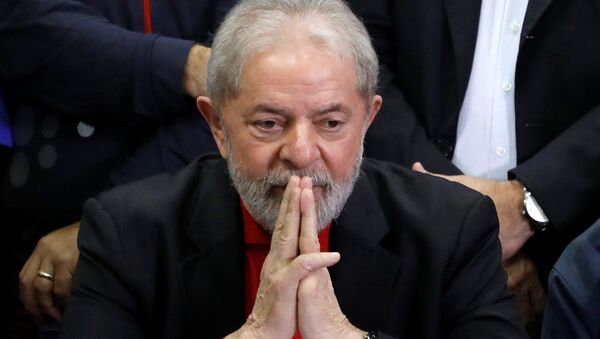Lula was freed by the Brazilian Supreme Court on November 8 on the grounds that it was unconstitutional to have imprisoned a defendant who was still attempting to appeal his conviction. The 74-year-old former president and co-founder of the Workers Party had sat in prison for 19 months by that point.
However, a regional court in Porto Alegre confirmed his sentence on Wednesday, raising the punishment by another five years to a total of 17 years and one month in prison if his appeals fail, AP reported. Lula’s legal defense team had asked the court to annul the sentence.
“I know I will live a life of much struggle going forward. But who knows who is innocent is not afraid to fight,” Lula tweeted Wednesday, following the court proceedings from Sao Paulo. “I will win every lawsuit against me by exposing their lies. My innocence is proven in the case file. They have no proof, what they have is a thesis: that Lula cannot be released.”
Vou vencer cada processo contra mim desmascarando a mentira deles. Minha inocência está provada nos autos do processo. Eles não tem provas, o que eles têm é uma tese: a de que o Lula não pode ficar solto.
— Lula (@LulaOficial) November 27, 2019
Lula served as the country’s president from 2003 until 2010. He was first imprisoned in April 2018 following his conviction for corruption and money laundering connected to his alleged purchase of beachfront property in the Sao Paulo state. The charges arose as part of the Lava Jato (Car Wash) corruption probe, which also targeted other members of the Workers Party, including then-President Dilma Roussef, Lula’s successor, who was removed from power in August 2016 in what many termed a “soft coup.”
Lula sought the presidency once more in the 2018 elections, but was disqualified by the Electoral Court just months before the vote, leaving no meaningful opposition to right-wing candidate Jair Bolsonaro of the Social Liberal Party, who swept the polls that October.
In June 2019, The Intercept published leaked documents showing that while he was still a judge, Justice Minister Sergio Moro had influenced Lula’s trial by coordinating an anti-Lula media strategy with state prosecutors.


